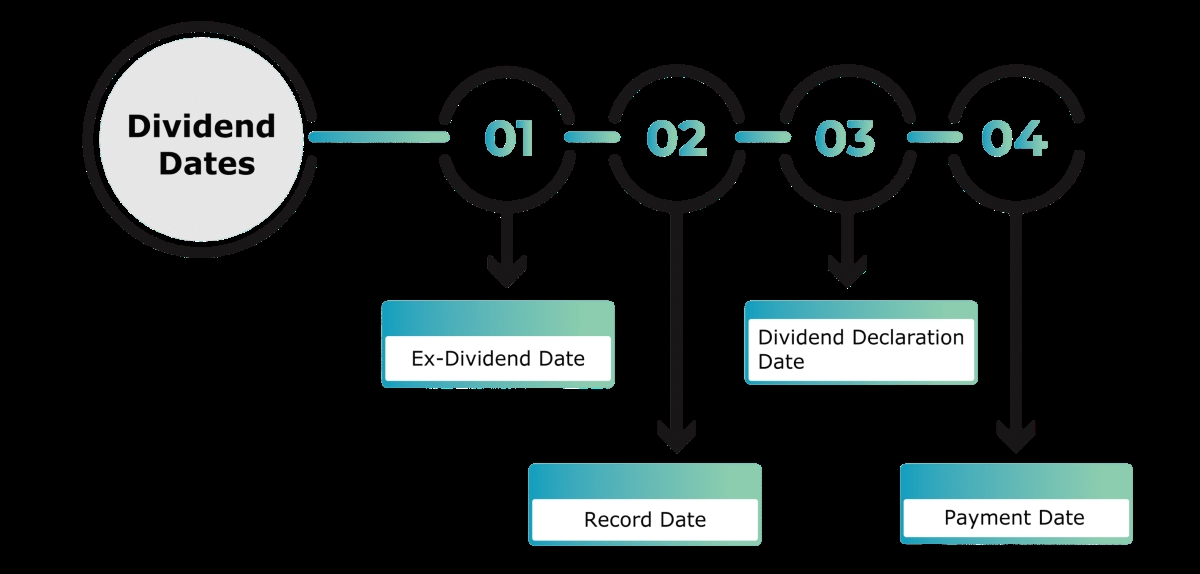Home>Finance>How To Get Fraud Protection For Someone In The Hospital


Finance
How To Get Fraud Protection For Someone In The Hospital
Published: February 18, 2024
Learn how to secure financial protection for a hospitalized loved one with our comprehensive guide. Protect your finances with expert advice and tips.
(Many of the links in this article redirect to a specific reviewed product. Your purchase of these products through affiliate links helps to generate commission for LiveWell, at no extra cost. Learn more)
Table of Contents
- Understanding the Risks of Fraud for Hospitalized Individuals
- Options for Fraud Protection for Hospitalized Individuals
- Setting Up Fraud Alerts and Monitoring for Hospitalized Individuals
- Freezing Credit Reports for Hospitalized Individuals
- Additional Steps for Protecting Hospitalized Individuals from Fraud
Understanding the Risks of Fraud for Hospitalized Individuals
Hospitalization can leave individuals vulnerable to various forms of fraud due to their reduced ability to oversee their financial matters. This vulnerability arises from several factors, including physical incapacitation, extended periods of absence from home, and the necessity of entrusting financial responsibilities to others.
During hospital stays, individuals may be preoccupied with medical concerns, making it challenging to monitor their financial accounts and activities effectively. This distraction can create an opportunity for fraudsters to exploit their personal information and engage in fraudulent activities, such as unauthorized transactions, identity theft, or manipulation of financial assets.
Moreover, hospitalization often involves the involvement of multiple parties, including medical professionals, caregivers, and administrative staff. While the majority of these individuals are dedicated to providing exceptional care, the extensive network of people involved in an individual's medical treatment can increase the risk of unauthorized access to sensitive financial information.
Additionally, the use of personal devices, such as smartphones, tablets, or laptops, in hospital settings can expose individuals to cybersecurity risks. Public Wi-Fi networks and shared devices may lack the necessary security measures, potentially exposing patients to data breaches and unauthorized access to personal information.
Furthermore, the emotional and physical strain of hospitalization can make individuals more susceptible to scams and fraudulent schemes. The desire for quick solutions to financial challenges or the fear of missing out on critical opportunities may lead hospitalized individuals to make impulsive decisions that could compromise their financial security.
Understanding these risks is crucial for implementing effective fraud protection measures for hospitalized individuals. By recognizing the vulnerabilities associated with hospital stays, proactive steps can be taken to safeguard individuals from potential fraudulent activities during their time of need.
Options for Fraud Protection for Hospitalized Individuals
When it comes to protecting hospitalized individuals from fraud, several options are available to mitigate the risks and ensure the security of their financial assets. These options encompass a range of proactive measures aimed at safeguarding personal information and financial resources during the vulnerable period of hospitalization.
Designating a Trusted Representative: One effective option involves designating a trusted representative, such as a family member or close friend, to oversee financial matters during the individual’s hospitalization. This representative can manage bill payments, monitor financial accounts, and address any suspicious activities on behalf of the hospitalized individual.
Utilizing Power of Attorney: Granting power of attorney to a trusted individual empowers them to make financial decisions and manage the individual’s affairs in their absence. This legal arrangement enables the designated person to act on behalf of the hospitalized individual, ensuring that financial matters are handled responsibly and transparently.
Implementing Digital Security Measures: Hospitalized individuals and their designated representatives can enhance digital security by utilizing strong, unique passwords for financial accounts, enabling two-factor authentication, and regularly updating security software on personal devices. These measures can fortify the protection of sensitive financial information and reduce the risk of unauthorized access.
Exploring Fraud Protection Services: Various financial institutions and service providers offer fraud protection services tailored to individuals facing unique circumstances, such as hospitalization. These services may include real-time transaction monitoring, identity theft protection, and dedicated support for addressing potential fraud incidents.
Establishing Emergency Contact Protocols: Creating clear and accessible emergency contact protocols with financial institutions can facilitate swift communication in the event of suspicious activities or the need to temporarily suspend account access. This proactive approach enables rapid response to potential fraud, minimizing its impact on the hospitalized individual’s financial well-being.
By exploring these options and implementing tailored fraud protection measures, hospitalized individuals and their trusted representatives can proactively safeguard their financial interests and mitigate the risks associated with potential fraudulent activities during the hospitalization period.
Setting Up Fraud Alerts and Monitoring for Hospitalized Individuals
Setting up fraud alerts and monitoring systems is a critical step in protecting hospitalized individuals from potential financial exploitation and fraud. These proactive measures serve as early warning systems, enabling swift detection and response to suspicious activities that may compromise the individual’s financial security.
Implementing Credit and Identity Monitoring: Hospitalized individuals and their designated representatives can opt to enroll in credit and identity monitoring services offered by reputable providers. These services continuously track credit reports and alert individuals to any significant changes or potential signs of identity theft, providing valuable insights into their financial status during the hospitalization period.
Activating Fraud Alerts with Credit Bureaus: By contacting major credit bureaus, such as Equifax, Experian, and TransUnion, hospitalized individuals can request the activation of fraud alerts on their credit files. These alerts prompt creditors to verify the individual’s identity before extending credit, adding an extra layer of protection against unauthorized attempts to open new accounts in the individual’s name.
Utilizing Account Monitoring Tools: Many financial institutions offer account monitoring tools that enable individuals to track account activity in real time and receive alerts for specific types of transactions or account changes. These tools empower hospitalized individuals and their representatives to stay informed about financial activities and promptly identify any unauthorized or suspicious transactions.
Leveraging Identity Theft Protection Services: Dedicated identity theft protection services can provide comprehensive support for hospitalized individuals, offering features such as dark web monitoring, identity restoration assistance, and insurance coverage for identity theft-related expenses. These services play a crucial role in mitigating the impact of identity fraud and unauthorized financial activities.
Establishing Communication Channels: It is essential for hospitalized individuals and their trusted representatives to establish clear communication channels with financial institutions, ensuring that they promptly receive alerts, notifications, and updates regarding any potential fraudulent activities or security concerns. Open lines of communication facilitate proactive responses to emerging threats.
By setting up fraud alerts, enrolling in monitoring services, and leveraging advanced tools for credit and identity protection, hospitalized individuals and their designated representatives can enhance their ability to detect and address potential fraud, thereby safeguarding their financial well-being during the hospitalization period.
Freezing Credit Reports for Hospitalized Individuals
Freezing credit reports is a proactive measure that can significantly reduce the risk of unauthorized access to a hospitalized individual’s financial information and help prevent fraudulent activities. By placing a credit freeze, also known as a security freeze, on their credit reports, hospitalized individuals can restrict access to their credit history, making it challenging for fraudsters to open new accounts or obtain credit using the individual’s identity.
Understanding Credit Freezes: A credit freeze effectively locks the individual’s credit report, preventing potential creditors and other parties from viewing the report without the individual’s authorization. This impedes fraudsters from using the individual’s personal information to apply for credit, as most creditors require access to the credit report as part of the application process.
Initiating a Credit Freeze: Hospitalized individuals or their designated representatives can initiate a credit freeze by contacting each of the major credit bureaus—Equifax, Experian, and TransUnion—either online or by phone. The process typically involves providing personal information to verify the individual’s identity and specifying the duration for which the freeze should remain in effect.
Temporary Lifts and Removals: In situations where access to the individual’s credit report is necessary, such as applying for new credit or loans, the credit freeze can be temporarily lifted or removed altogether. This flexibility allows the individual or their representative to manage credit access while maintaining a high level of protection against unauthorized inquiries.
Impact on Existing Accounts: It’s important to note that placing a credit freeze does not affect the individual’s existing accounts or credit history. The freeze primarily applies to new credit inquiries and account openings, providing a robust defense against identity theft and unauthorized financial activities.
Enhanced Security and Peace of Mind: By freezing their credit reports, hospitalized individuals can experience enhanced security and peace of mind, knowing that their credit information is shielded from potential exploitation during their period of hospitalization. This proactive step aligns with broader efforts to protect their financial well-being and minimize the risk of fraud-related complications.
Overall, freezing credit reports represents a powerful tool for mitigating the risk of identity theft and fraudulent credit activities, offering a valuable layer of defense for hospitalized individuals and their financial assets.
Additional Steps for Protecting Hospitalized Individuals from Fraud
Aside from the aforementioned measures, additional steps can be taken to further safeguard hospitalized individuals from potential fraud and financial exploitation. These supplementary actions complement existing fraud protection strategies and contribute to a comprehensive defense against various forms of fraudulent activities during the hospitalization period.
Educating Caregivers and Family Members: It is essential to educate caregivers, family members, and individuals involved in the hospitalized individual’s care about the risks of financial fraud and the importance of vigilance. By raising awareness and providing guidance on identifying and addressing potential fraud indicators, the support network can actively contribute to the individual’s financial security.
Restricting Access to Personal Information: Hospitalized individuals and their designated representatives should take proactive steps to limit the dissemination of personal and financial information, especially within the hospital environment. This includes safeguarding sensitive documents, such as insurance cards, social security numbers, and financial statements, to prevent unauthorized access and potential misuse.
Regularly Reviewing Financial Statements: Designated representatives should regularly review the hospitalized individual’s financial statements, including bank accounts, credit card statements, and investment portfolios, to detect any irregularities or unauthorized transactions. Timely and thorough reviews can help identify potential fraud and address it promptly.
Utilizing Secure Communication Channels: When communicating with financial institutions, healthcare providers, and other relevant parties, it is crucial to utilize secure communication channels to transmit sensitive information. This includes using encrypted email services and secure online portals to minimize the risk of unauthorized interception of financial data.
Seeking Legal and Financial Advice: In complex cases or instances where fraudulent activities have been detected, seeking legal and financial advice from professionals with expertise in fraud mitigation and consumer protection can provide valuable guidance. These specialists can offer insights into resolving fraud-related issues and implementing additional protective measures.
Documenting and Reporting Suspicious Activities: Keeping detailed records of any suspicious financial activities and promptly reporting them to the relevant authorities, such as financial institutions and law enforcement agencies, is paramount. Documenting such incidents can support the investigation and resolution of potential fraud cases.
By incorporating these additional steps into the overall fraud protection strategy for hospitalized individuals, a comprehensive framework for mitigating fraud risks and safeguarding financial well-being can be established. These measures, when combined with proactive monitoring and communication, contribute to a resilient defense against potential financial exploitation during hospitalization.














